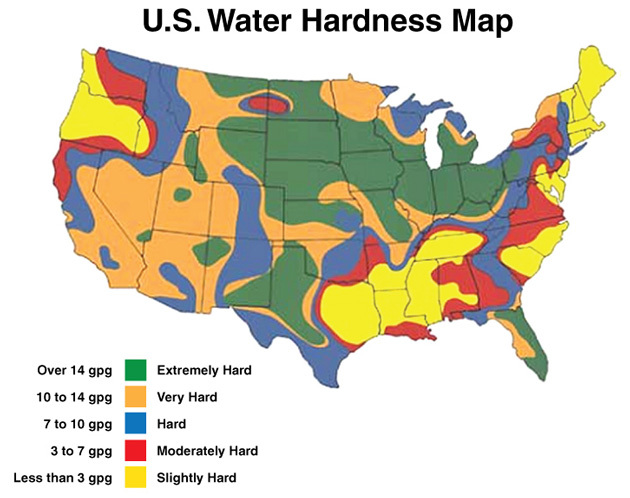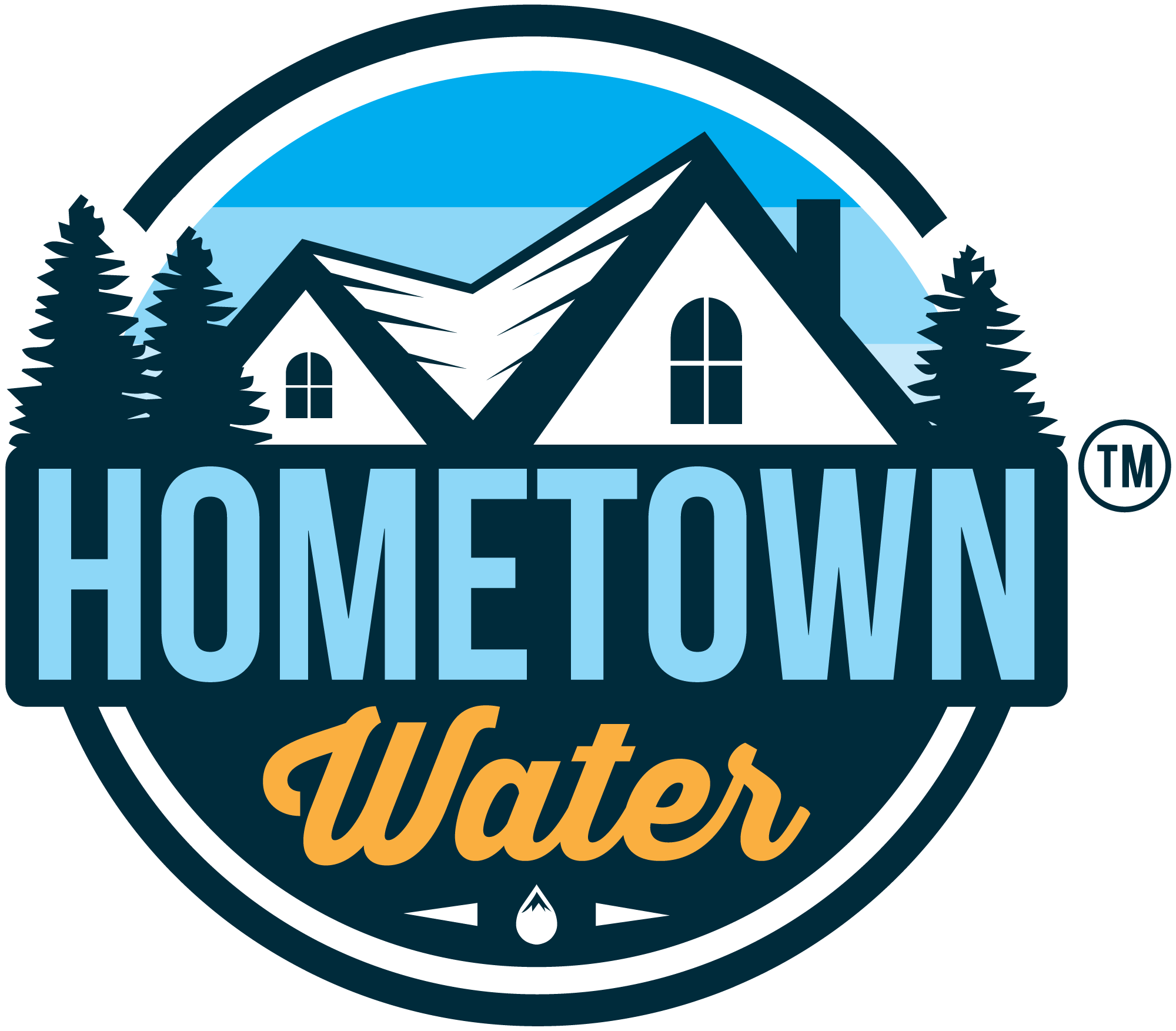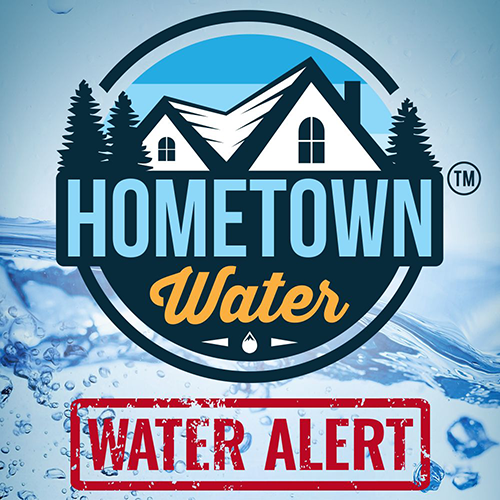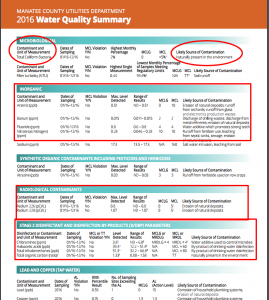What is hard water and why does it matter?
Hard water is water that contains a high mineral count of calcium, magnesium and iron which has negative effects on the condition of the water. Florida ground water often percolates through limestone where it picks up calcium and magnesium deposits. Florida has a huge supply of surface water and groundwater resources. Florida also sits on top of one of the most plentiful fresh water aquifers in the United States and the world. This aquifer supplies water to hundreds of springs and provides the base flow to many of Florida’s rivers and streams, which, are ultimately the source of our drinking water in Florida – whether well or city tap. What this means is that the Florida drinking water is sourced from both rain and storm water and from places susceptible to limestone exposure. Because our Florida groundwater comes from a whole host of different places and sources, it is hard to pinpoint where and what exactly is in our water. But because of what lays underneath Florida in our aquifers which travel for hundreds of miles underground, our drinking water is especially vulnerable to contamination.
Calcium, magnesium and iron aren’t necessarily bad for you. In fact, they’re actually beneficial nutrients. However, hard water sediments can also carry potentially harmful bacteria along with them. A 2014 study found hard water scaling is directly responsible for bacterial growth in residential drinking water. The U.S. Geological Survey says 85% of homes in the nation have hard water.
Here are 5 real-life problems hard water causes:
1. Water Tastes and/or Smells Weird or “off”
A strange odor or taste is often one of the first clues you have a whole home water conditioning issue. It’s a sure sign there is hard water or some sort of bacterial contaminant. Smell is a really easy way to assess and determine that you need to further filter and condition or soften your home’s water. If it smells “off” don’t drink it!
For instance, if your water has an unpleasant metallic taste, that’s probably too much iron. If your water smells like rotten eggs, that could be naturally occurring hydrogen sulfide gas or certain bacteria reacting with magnesium to form sulfates. Some people say their water tastes like dirt. That could be sediment (actual dirt), old pipes or algae. Algal blooms can also give tap water a moldy aftertaste.
No one likes to drink water with a funky smell or flavor. But that’s just the beginning of your problems.
2. Brown or Reddish Stains in Sinks, Showers and Bathtubs
Ugly brown or reddish stains on the porcelain are embarrassing and can be very hard to clean. You can blame hard water – specifically iron. It’s no coincidence those stains look a lot like rust spots.
The iron in your water could be coming from rusty pipes. Some people suggest using vinegar to help clean and remove them. Unfortunately, the stains will keep reappearing until you fix your hard water problem. This is especially easy to spot on the sides of Florida homes as well. Sprinkler systems are a clear way to spot hard water. As they spray the hard water on the sides of the home or structure, reddish-brown stains will appear and get worse over time or until cleaned.
3. Clothes Aren’t Getting Clean with recommended amounts of detergent
Hard water can have a negative impact on laundry – and once again – it’s all due to the rocky relationship minerals like calcium and magnesium have with soap and detergent. Soap is used to wash away dirt and grime, but when soap doesn’t get rinsed off, it can actually increase soil build up on your clothes. Clothes washed in hard water often appear dingy and wear out faster. It can even make your towels scratchy and rough.
When you have hard water, you may have to buy detergent formulated to soften the water for you. However, you’ll likely have to use more laundry detergent (and hotter water) to get your clothes clean. It’s even advised that people with hard water use four times as much detergent. Plus, just as iron stains your bathroom fixtures, it can stain your clothes.
Premature yellowing of your whites could be caused by iron content in the water. When combined with bleach, iron oxidizes, and iron oxide is another name for rust.
4. Household Members Suffer from Skin Irritation Issues
Because washing in hard water will leave soap behind, it causes people’s skin to get dried out and itchy. Mineral deposits left on the body can also suck moisture right out of your skin.
The skin condition eczema is fairly common, especially among younger children. There is research indicating that bathing in hard water could cause eczema symptoms to worsen. Another study concluded exposure to hard water could increase the risk of developing eczema in young children.
5. Your Appliances Are Wearing Out Quickly
This is almost always the most negative and expensive hard water outcome of all. The mineral scale deposits will wreak havoc on home appliances, from the dishwasher to the washing machine to the water heater. A build up of sediment in your water heater can make it far less efficient. The same goes for other appliances. Poor efficiency means bigger utility bills and faster time to wear out and need replacement. Simple fact and logic applies here.
The icemaker in your fridge can stop working as scale deposits clog up valves. The American Water Works Association says hard water can cause a washing machine to wear out 30% faster than normal. It’s not difficult to see how hard water can cost you money in the long run. In fact, it’s estimated hard water expenses could cost you $800 or more every year.
How Water Filtration and Conditioning Help
Each home can have different problems with water quality. HomeTown Water has an answer to every need and budget. With a water softener and/or reverse osmosis system you can eliminate troublesome minerals and potentially harmful contaminants. We have salt-free systems, well water filtration systems with proprietary filtration processes for both Florida well water and Florida city tap water supplies. Our whole-home filtration systems can be financed with no money down and cost less than bottled water solutions and pay for themselves with the savings from using less cleaning chemicals, soaps, shampoos, dishes and more.
Contact us today by using the scheduling form popup or go to our contact page and complete the form. Of course, we’d love a simple phone call too if you prefer to just call!



 Tampa area residents need to be fully aware of exactly what is in their water. While the government officials will make it appear and sound like we are drinking water that is extremely pure and clean, that illusion is far from the truth.
Tampa area residents need to be fully aware of exactly what is in their water. While the government officials will make it appear and sound like we are drinking water that is extremely pure and clean, that illusion is far from the truth.





Recent Comments